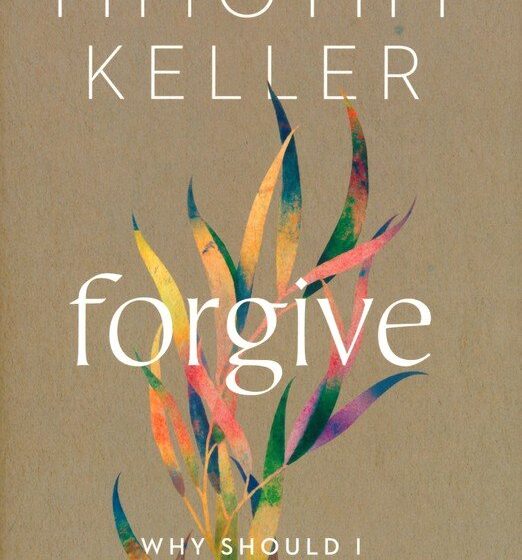
 Forgive: Why Should I and How Can I?
Forgive: Why Should I and How Can I?
Viking published Timothy Keller’s latest book, Forgive: Why Should I and How Can I? in 2022. In 1989, Pastor Keller started Redeemer Presbyterian Church in New York City with his wife, Kathy, and their three sons. Pastor Keller first notes that today’s culture sees an apparent contradiction between forgiveness and justice. Yet, the author asserts, people possess an indelible, profound need to grant and to receive forgiveness. Furthermore, Pastor Keller describes forgiveness as a form of voluntary suffering where you make the choice to bear the cost. However, when you opt not to forgive, justice seeking often veers into revenge territory. Divine mercy, though, should change our hearts so we forgive others as God forgave us. In addition, God calls us to nonretaliation, patience, and love for enemies. Without diminishing the injustice of the offense.
Forgiveness occurs within the framework of divine and human worth. And God’s forgiveness equally honors justice and mercy. In the fullest sense, biblical forgiveness involves more than simply asking for a pardon or remission. It’s always after restored relationship. So, when you create offense, repent and wait until your soul sees God again. A heightened capacity for love, gift-giving, and forgiving others serves as a sign you’ve been forgiven. But if you move against God’s love, you move against yourself. Most significantly, Pastor Keller cautions, you can get away with your sins, but you can’t get away from your sins. God did this out of love. Also, because we have both God’s law and love for us, we couldn’t be more secure.
Furthermore, if we fail to combine justice and love in our dealings with others, ultimately, we’ll do neither. Hence, Christians seeking justice must be guided by the cross. And there’s no putting justice against forgiveness, for the cross shows God’s commitment to both. Therefore, when we’re forgiven and not forgiving, we fail to experience God’s gracious acceptance. To love those who don’t love you reflects the character of God himself. It’s not a piece of pragmatic wisdom. We must possess enough humility and joy to forgive as well as understand the cost of Jesus’s saving love. Because God is loving, we have free grace. And because He is holy, that grace is infinitely costly. As the final judge, only God can overrule our heart’s guilt and self-condemnation.
In conclusion, Pastor Keller underscores, repentance is a process. To rejoice in the free mercy of God, we must stop blame shifting, self-pity, and self-flagellation. We need to confess and forsake sin. Yet, the author counsels, it’s extremely easy to develop an unforgiving spirit – and not see it in yourself. Conquer and defeat evil as you respond to it with good. Get as full a justice as you can and leave the rest to God.
Finally, Pastor Keller ends with his encouragement on how best to forgive:
“[Jesus] . . . called for forgiveness and offered his peace to those who were killing him. To all of us, then, no matter what we have done, he offers the peace of God. This gift came at an infinite cost to him, but he offers it to us gladly. Le us receive it and pass it along to others in the same way.”

